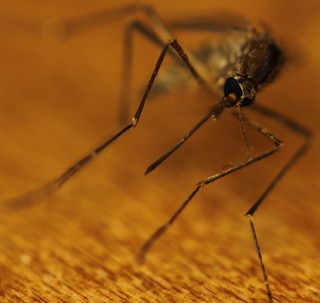The first time I went to a doctor to get anti-malarials I remember the doctor looking up what drug was needed where in an ancient book in which we had to go through each country I may or may not be visiting. It took forever and I’m pretty sure he ended up making fair guesses as to what I needed. I also did a lot of research of my own just to check he was right, but it goes to show that not all doctors are going to be up on what’s what in the world of the malaria carrying mozzie. Even now, in the age of the internet, there are many doctors who do not travel to or live in malarial regions, or are used to dealing with a strain that is not a factor in the place that you are headed to, or simply do not have a particular interest in vector borne diseases. Fair enough. But how do you cross-check that you’ve got the right thing or simply find out more about where the worst strains of malaria exist? This question is especially difficult if you are in a position where you do not have access to a medical professional and need to make a call. Obviously I’m not advocating self-medication here and please do not take any advice from this website over that of a medical professional. An internet search showed me that there is a lot of conflicting and outdated information out there, so getting to a reliable doctor is certainly the best course of action.
What is malaria and how do I avoid it?
Malaria is a protozoan parasite, carried by the anopheles mosquito, of which there are four different species, Plasmodium falciparum, P. vivax, P. ovale and P. malariae. So, knowing which one you are dealing with determines which drug you will need to take as one drug does not affect all varieties. Also, no drug will render you completely safe from malaria and they do not claim to, so you must still be diligent in covering up to avoid bites. Despite traveller’s tales to the contrary, eating vitamin B or garlic or filling your gullet with gin and tonics will not prevent malaria. Those particular remedies may, however, fend off other types of unwanted suitors if you use them correctly.
For planning, the first thing to do is to find out what the risks are for the region you are going to. Various areas of the world, according to WHO, can be described in four types:
| Malaria risk | Type of prevention | |
| Type I | Very limited risk of malaria transmission | Mosquito bite prevention only |
| Type II | Risk of P. vivax malaria or fully chloroquine-sensitive P. falciparum only | Mosquito bite prevention plus chloroquine chemoprophylaxis |
| Type III | Risk of malaria transmission and emerging chloroquine resistance | Mosquito bite prevention plus chloroquine+proguanil chemoprophylaxis |
| Type IV | High risk of falciparum malaria plus drug resistance, or moderate/low risk falciparum malaria but high drug resistance | Mosquito bite prevention plus either mefloquine, doxycycline or atovaquone/proguanil (take one that no resistance is reported for in the specific areas to be visited) |
International Travel and Health 2005, accessed on 31/05/2011 at http://whqlibdoc.who.int/publications/2005/9241580364_chap7.pdf
Do I need anti-malarials?
Weighing up how much time you are going to be in a region and how likely you are to become bitten by mosquitoes is a large part of the equation. For example, some regions may be affected but if you are only going to be high in the mountains, the risk may not be as great or even nonexistant. It is generally believed that if you are above 2,000 metres (6500 feet), there is less risk, however there have been high altitude epidemics so keep your ear to the ground. If you are heading into an area for only a short term and do not want to take a course of anti-malarials, your main aim should be to avoid being bitten. This means keeping your entire body covered in clothing and lovely DEET-based mosquito repellants from at least dusk to dawn when you are most likely to get the bites, but also to be vigilant at all other times for rogue mosquitoes who don’t play by the rules. Day-biting mosquitoes sometimes carry dengue, yellow fever and other things you’ll want to avoid anyway. Carrying a sleeping net with you is also useful. Although some types of accommodation provide nets, they often have holes in them or do not cover well.
How do anti-malarials work?
If too many of the parasite plasmodium , enter the liver and bloodstream, this is where you are deemed to have malaria. The way anti-malarials work is that they slow the proliferation of the parasite. Anti-malarials are not a vaccine. They do not completely prevent malaria so it is important to follow the guidelines of the particular drug you are taking to a T in order to up the chances that you will not end up with malaria. The important thing is to take the full course of the tablets, meaning before during and after your trip into the affected area. The reason for continuing to take the tablets for a couple of weeks after possible exposure is that the parasite could already be in your system without you knowing. Where many travellers fall down is that they stop taking their drugs too soon, the plasmodium continue to have a party in the liver and, well, you know.
So, if you have access, work with a doctor to get the best thing for the region you will be going to and don’t forget your DEET!
Tell us your malaria stories. We know you have them! Send us a comment or a Tweet.
Photo credit: Mosquito by Gamma Man on Flickr


Leave a Reply